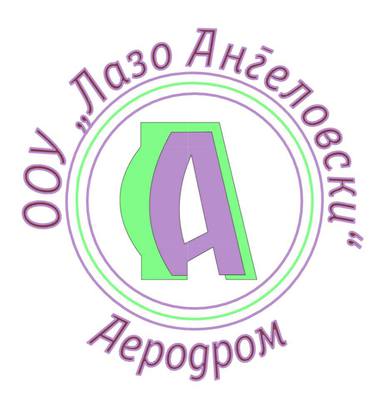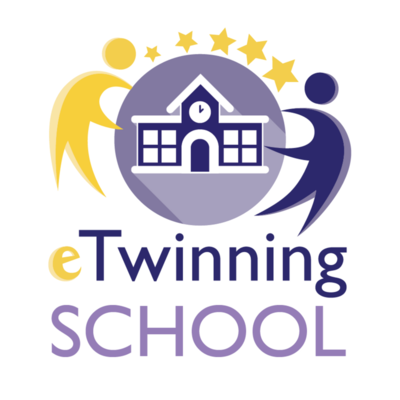

The Municipal primary school “Lazo Angelovski” was built in the year 1988. The premises of the school occupy an area of 4752 m2 whereas the school yard occupies an area of 12604 m2. The school also includes sport courts and fields that occupy an area of around 200 m2.
The total number of employees is 104, 88 of which are professional educators - teachers.
The total number of students in the school year 2018/19 was 1424 (grades 1st to 9th: 6-15 years old), even though this number used to be much higher in the past – reaching an unbelievable number of 2700 students in the school year 1993/94.
The school has its own emblem and school anthem. Apart from the regular school activities and the activities for the Patron’s Day celebration, the primary school “Lazo Angelovski” organizes the following manifestations:
- Musical games
- Quiz of knowledge
- Foreign languages night
- Art happenings
- Sports days
- Orator night and many more.
MISSION
Our school is an environment that supports individual development of the students and professional development of the teachers leading to effective and quality educational process.
VISION
To be a leader and role model innovative school.
Since its beginning, our school has participated in numerous projects, festivals, competitions, where both students and teachers have won many awards and acknowledgments, which are proudly displayed on the walls of our school. The school has also collaborated with many governmental and nongovernmental organizations in the realization of many different projects and programs. So far, our partners have been: The Ministry of Education and Science of Republic of Macedonia, The Bureau for Educational Development of Republic of Macedonia, The Ministry of Interior of Republic of Macedonia, USAID, UNICEF, ОXО, PAKOMAK, NGO – Open Gate – La Strada (Macedonia) and many more.
As a primary school, our focus is to be active and raise children’s awareness by taking active participation in different multicultural projects, eco projects, projects against violence and other. Some of our activities include:
- Project “Early learning of the German language“ – supported by the Ministry of Education and Science of RM and the Goethe Institute in Skopje
- Project “Multicultural integration in education” – supported by the Ministry of Science and Education, the Bureau of Educational Development of RM and USAID
- Project “School without violence“ – supported by UNICEF
- Project “Entrepreneurship“ – supported by SEECEL
- Project “Thinking Mathematics in early grades“ – supported by the Bureau of Educational Development of RM
- Project “Language literacy in early grades“ – supported by the Bureau of Educational Development of RM
Our teachers take part in many trainings, seminars and educational workshops that focus on introducing new approaches and methods in education. The teachers are divided into two groups:
- First group – teachers that teach from 1st grade to 5th grade (students 6-10 years old) (where one or two teachers teach different subjects)
- Second group – teachers that teach from 6th grade to 9th grade (students 11-14 years old) (where one teacher teaches one or two subjects).
OOU Lazo Angelovski has been a pilot school for many projects over the years, such as: Civil education, Active education, Descriptive grading, Computer for every child, including the newest projects like the project for integrating ECO content into education, Entrepreneurship and Inclusion.
OOU Lazo Angelovski has been functioning as an inclusive school since 1990, including children with different types of special needs into the educational process like Down syndrome, cerebral paralysis, autism, children with sight and hear impairment and similar. The teachers work with these children and there is also an Inclusive Team formed within the school itself that provides support and guidance to all teachers and students for overcoming the barriers and problems in the educational process.
Our school is also a model Entrepreneurial school since 2016, awarded by SEECEL.
Our school was awarded the award “The most digital school” from Macedonia, as part of the Erasmus+ project “Digital School Contest - DISCO”. The project aimed to develop a programme of initiatives on ICT integration in education to promote innovation, exchange of experience, good practices and know-how between different types of organisations involved in education. Developing basic and transversal skills in education, using innovative and learner-centred pedagogical approaches.
Enhancing digital integration in learning, teaching, at various levels: supporting ICT-based teaching, as well as ICT-based assessment practices. In particular, supporting teachers, educational staff in acquiring or improving the use of ICT for learning and related digital competences.
Since 2016 we have 3 eTwinning ambassadors in our school and in 2017, we became eTwinning awarded school. Our teachers have received several National Quality labels and European Quality labels for different projects on eTwinning.
With our previous two Erasmus+ KA101 awarded projects "Creating innovative future" (2016/17) and “Tailored teaching for engaged students” (2017/18), 8 teachers and 1 school counselor went to two training courses about working with SEN students in March 2017 and January 2018. The chosen courses provided theoretical and practical approaches with working with SEN students (case studies, workshops and exercises). Also 4 teachers went to a training course for development of teachers’ ICT competences in February 2017 and 4 teachers went to a training course about integrating PBL into the classroom and the school curriculum in March 2018. These courses led to enriched learning environment that enabled students to become actively involved in the learning process and enabled teachers to personalize and adapt the activities to the students’ learning styles, learning strategies and skills through the use of digital tools and resources.
Our Erasmus+ KA219 project “Let’s ART the future” covered a collection of studies and observations that examined how arts learning experiences affect the academic achievement and social development of children. It included examples of tasks conducted in three major art form areas: games, visual arts, and music. Moreover, computer science skills are increasingly required in many different fields. Perhaps more importantly, learning to code also develops skills such as problem solving, logical reasoning and creativity. Taking into account the Europe 2020 strategy, an effective investments in education is needed. This project led us into research and innovation in the fields of ICT, sports and arts. It gave us the chance to spotlight on the needs of our curricula, develop and implement new working methods, tools or resources, or run a joint research project on an issue affecting the learners.